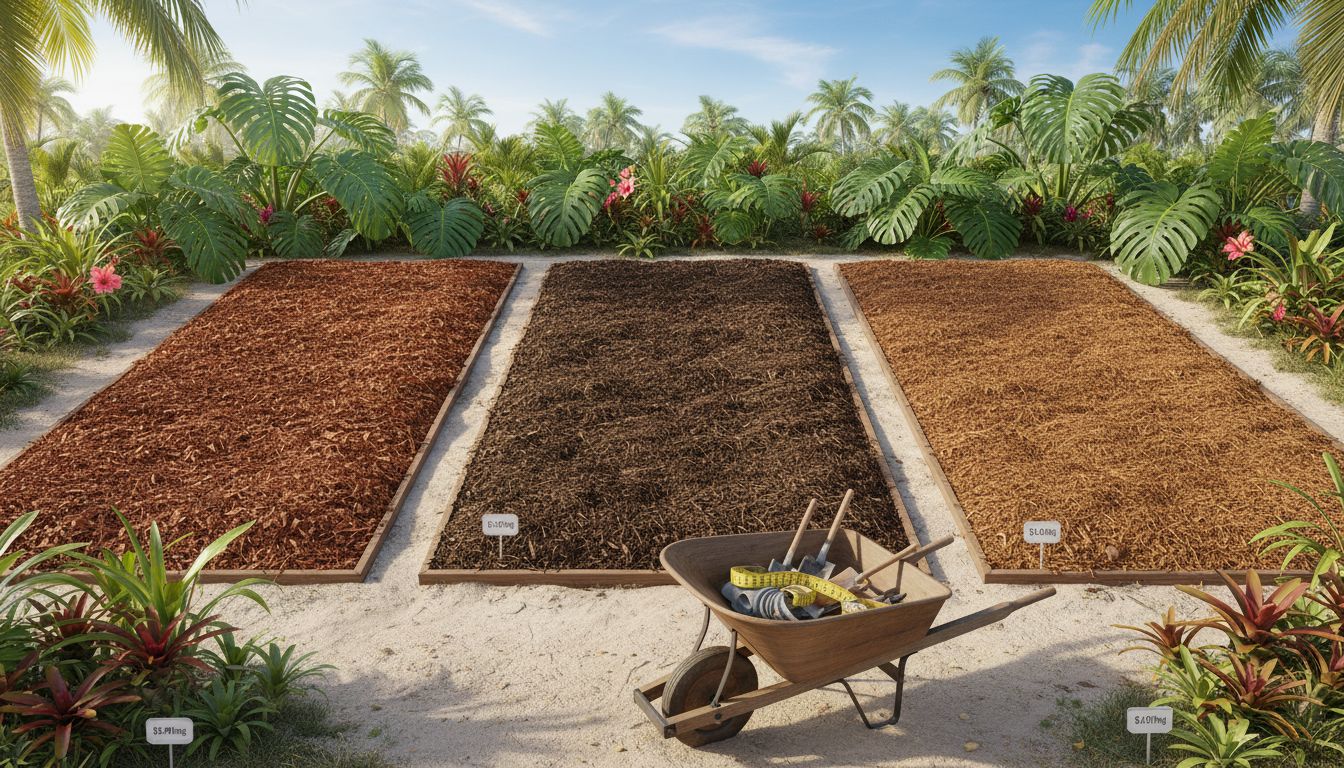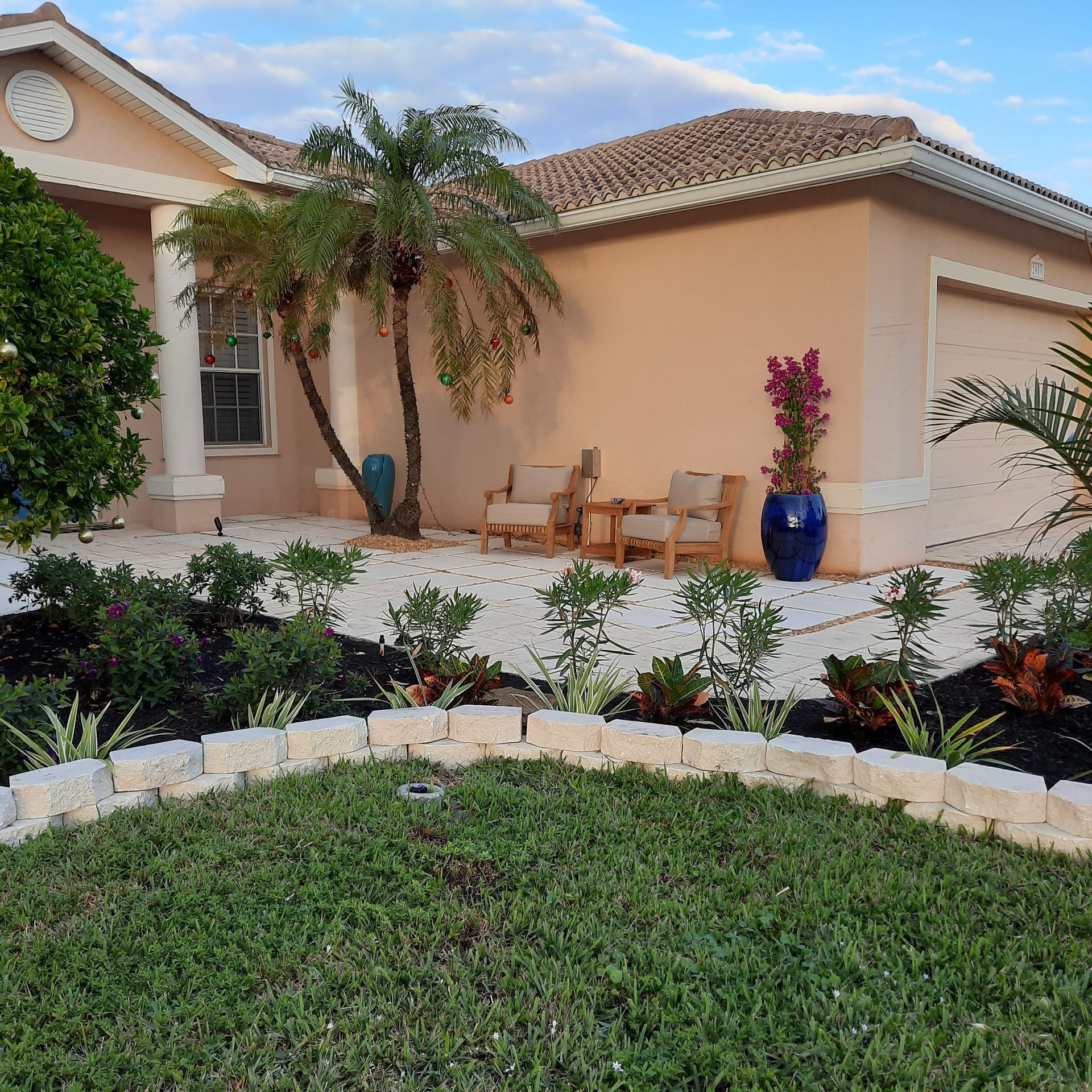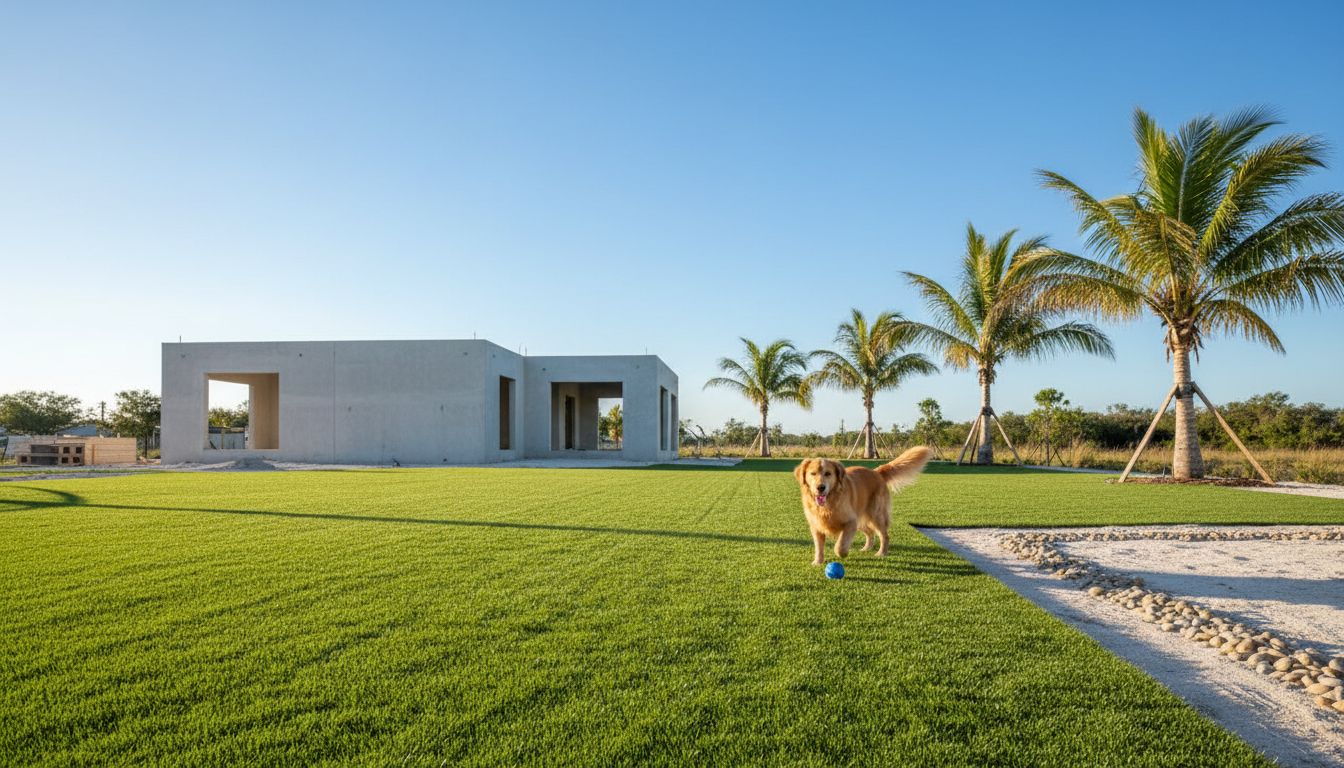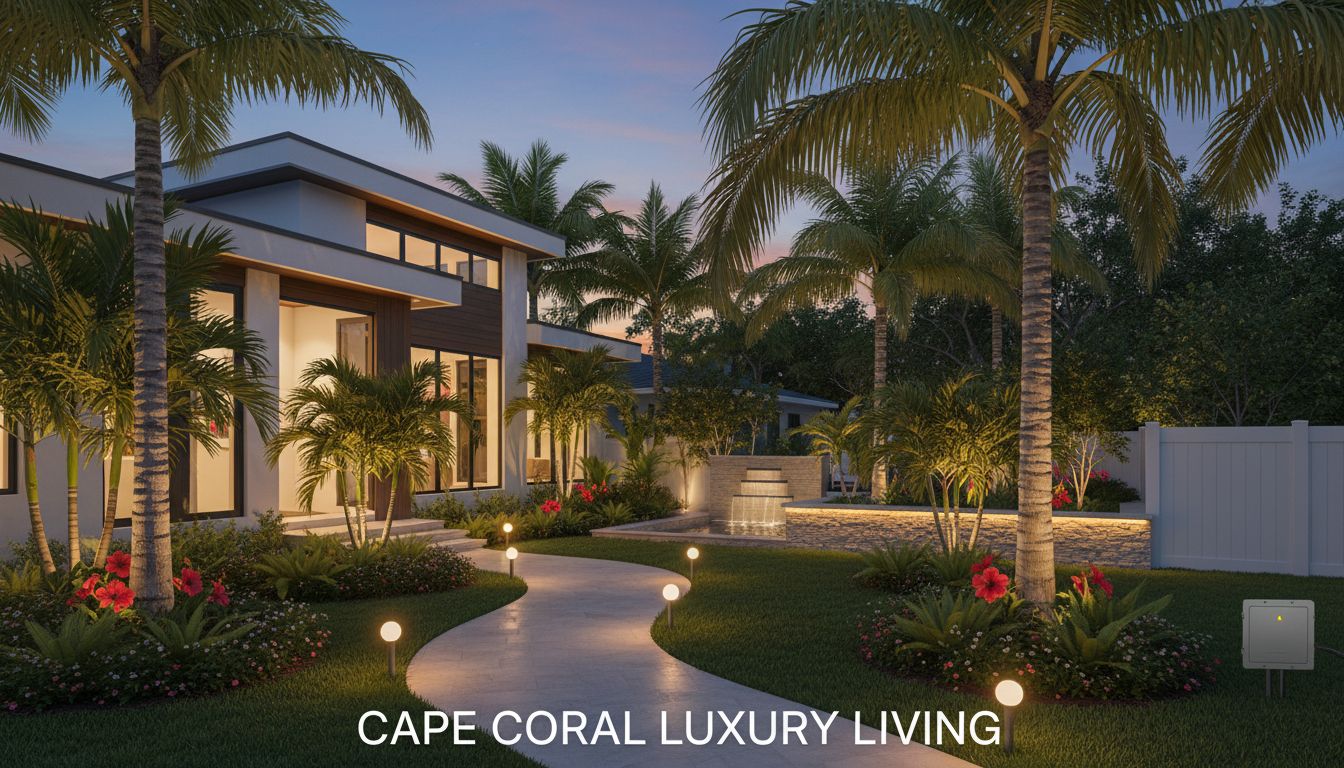Common Paver Problems in Cape Coral and How to Fix Them
Common Paver Problems in Cape Coral and How to Fix Them
Why Cape Coral’s Climate Creates Unique Paver Challenges
Living in Cape Coral, Florida, means dealing with a climate that can be tough on outdoor surfaces like pavers. The combination of intense heat, high humidity, relentless UV exposure, and seasonal storms creates the perfect storm for paver issues. Over time, these conditions lead to fading colors, biological growth like algae and moss, and shifting in joints and base layers. Pool decks and waterfront homes are especially vulnerable because they're constantly exposed to moisture, salt, and chemicals, which accelerate wear and tear.
To combat these challenges, proactive maintenance is essential. Regular cleaning, re-sanding, sealing, and ensuring proper drainage can make a big difference in extending the life of your pavers. Cape Coral homeowners benefit from local best practices tailored to this coastal environment, such as using stabilized joint sands and UV-resistant sealers. These measures help protect pavers against the unique stressors of Southwest Florida, keeping them looking great and functioning well for years.
Weed, Moss, and Algae Growth Between Pavers: Causes and Fixes
Weed, moss, and algae growth between pavers is a common issue in Cape Coral, thanks to the warm, humid climate that promotes moisture retention in joints. Organic debris like leaves and dirt also contribute to the problem by providing nutrients for unwanted growth. Insufficient joint stabilization further exacerbates the issue, making it a frequent headache for homeowners across Florida's coastal areas.
The good news is that there are effective fixes for this problem. Pressure cleaning can remove surface growth, while targeted biocides or herbicides safe for hardscapes and pets can tackle deeper roots. Re-sanding joints with polymeric or stabilized sands helps prevent future growth, and applying a quality sealer creates a protective barrier that inhibits regrowth. These steps not only improve the appearance of your pavers but also extend their lifespan.
Prevention is just as important as fixing the problem. Regularly sweeping your pavers and trimming nearby landscaping can reduce the amount of organic debris that accumulates. Ensuring adequate sun exposure and airflow around paved areas also discourages growth. Finally, scheduling maintenance before the rainy season begins can help you stay ahead of potential issues, keeping your pavers looking clean and weed-free all year round.
Fading and Discoloration from UV and Chemicals
Pavers in Cape Coral often suffer from fading and discoloration due to prolonged UV exposure, salt and chlorine from pool decks, tire marks and oils on driveways, and stains from fertilizers or hard water. These factors can dull vibrant colors and leave unsightly marks that detract from your outdoor space’s appearance. Without proper care, these stains can become permanent, making prevention and timely treatment crucial.
Luckily, there are remedies for faded and stained pavers. Deep cleaning can restore much of the original color, while color enhancement products or tinting solutions can revive dull surfaces. For specific stains, targeted treatments like oil removers or rust removers work wonders. Applying a UV-resistant sealer after cleaning adds an extra layer of protection, shielding your pavers from further damage caused by sunlight and chemicals.
To keep your pavers looking fresh, preventive care is key. Choosing fade-resistant materials and finishes during installation can save you headaches down the road. After using pool chemicals, rinsing the surrounding area helps minimize salt and chlorine exposure. Regularly applying and maintaining protective sealers according to a set schedule ensures your pavers remain vibrant and stain-free despite Cape Coral’s challenging environment.
Shifting, Settling, and Sunken Pavers: Trip Hazards and Structural Causes
One of the most frustrating paver problems in Cape Coral is shifting, settling, or sunken pavers. Heavy rains can wash out the base material, while improper compaction during installation sets the stage for future issues. Tree roots growing underneath paved areas, heavy traffic loads, and poor drainage systems also contribute to low spots and puddling, creating trip hazards and compromising structural integrity.
Fixing these problems involves lifting and relaying the affected pavers. First, the base must be regraded and recompacted to ensure stability. Bedding sand is then added, followed by resetting edge restraints to hold everything in place. Joints are re-sanded, and a final sealant application completes the process, restoring both functionality and aesthetics. This method works well for isolated areas but may require more extensive repairs if widespread settlement occurs.
If you notice recurring sinkage or evidence of sub-base failure near driveways, pool decks, or seawall-adjacent areas, it’s best to call a professional. These situations often indicate underlying drainage or structural issues that need expert evaluation and correction. A qualified contractor can assess the situation and recommend solutions tailored to your property’s unique needs, ensuring long-term results and peace of mind.
Standing Water, Poor Drainage, and Puddling Problems
Standing water and poor drainage are significant issues for pavers in Cape Coral. When water pools on uneven surfaces or in improperly graded areas, it leads to algae slicks, joint erosion, and destabilization of the base material. Over time, this accelerates degradation and compromises the overall durability of your pavers, making timely intervention critical.
Fortunately, there are several fixes for drainage problems. Correcting the slope of the paved area ensures water flows away instead of pooling. Adding channel or strip drains in low spots helps manage excess water, while cleaning or installing French drains improves subsurface drainage. Resetting pavers in affected zones and ensuring downspouts discharge away from paved areas further enhances water management, reducing the risk of future issues.
Maintenance plays a vital role in preventing standing water problems. Seasonal inspections before the wet season allow you to catch small issues early. Keeping joints filled and edges intact prevents water from penetrating beneath the surface, while removing debris that blocks flow ensures proper drainage. These simple steps go a long way in preserving the beauty and functionality of your pavers throughout the year.
Efflorescence, White Haze, and Hard-Water Staining
Efflorescence, or the white haze that sometimes appears on pavers, is caused by mineral migration brought on by moisture. This issue is particularly common in new installations or areas with poor drainage. It’s important to differentiate efflorescence from salt, chlorine, or irrigation stains, as each requires a different approach to remedy effectively.
To fix efflorescence, specialized cleaners or light acid washes can be used when appropriate. Thorough rinsing is essential to remove any residue, and allowing the surface to dry completely before sealing prevents trapping moisture underneath. Adjusting irrigation systems to avoid overspray and ensuring proper drainage reduces the likelihood of efflorescence returning. With the right care, this pesky problem can be managed successfully.
Sealing Pavers in Cape Coral: When, Why, and How Often
Sealing pavers in Cape Coral offers numerous benefits, especially given the region’s harsh climate. A quality sealer protects against color fading, resists stains, stabilizes joints, and reduces weed and mold regrowth. It also makes cleaning easier, which is a huge advantage in Florida’s humid, high-traffic environments. For these reasons, sealing is considered a critical step in paver maintenance.
Timing is everything when it comes to sealing. New installations should cure fully before applying a sealer, and the surface must be thoroughly cleaned and dried beforehand. Water-based, UV-resistant sealers are ideal for Florida conditions, offering excellent performance without the strong odors associated with solvent-based options. Depending on exposure and traffic levels, re-sealing every 2–3 years is typically recommended, though annual inspections can help refine this schedule.
Proper application techniques ensure the best results. Start with thorough surface prep, including joint re-sanding to fill gaps. Test small areas to decide between an enhanced finish or a natural look. Apply the sealer at the correct rate to avoid streaking or whitening, and choose a weather window with low humidity and moderate temperatures for optimal drying. Following these best practices guarantees a durable, attractive finish that stands up to Cape Coral’s demanding conditions.
Pool Deck Pavers: Chlorine, Salt, and Slipperiness
Pool deck pavers face unique challenges in Cape Coral, where chemical exposure from chlorine and saltwater systems can cause discoloration and accelerate corrosion. Algae growth near waterlines makes surfaces slippery, posing safety risks, while weeds sprout in joints exposed to constant moisture. These issues require specialized solutions to maintain both functionality and aesthetics.
Non-slip finishes or texture retention techniques can address slipperiness concerns. Frequent rinsing after balancing pool chemicals minimizes staining, while anti-algae washes keep surfaces safe and clean. Using stabilized joint sands and sealers designed for pool environments ensures long-lasting protection. By combining these strategies, homeowners can enjoy beautiful, low-maintenance pool decks year-round.
Driveway Pavers: Heavy Loads, Oil, and Tire Marks
Driveway pavers endure heavy loads, leading to rutting, especially near turning areas where joints tend to loosen over time. Oil and transmission fluid leaks leave stubborn stains, while darker pavers often show unsightly tire scuffs. These issues not only detract from curb appeal but also signal potential structural weaknesses that need attention.
Base reinforcement and edge restraint checks can prevent rutting and joint loss. Stain-specific cleaners tackle oil and tire marks effectively, while periodic joint re-sanding restores stability. High-performance sealers rated for vehicular traffic provide an additional layer of protection, ensuring your driveway remains both functional and visually appealing despite daily wear and tear.
Root Heave Near Trees and Landscaping Intrusions
Expanding tree roots are notorious for displacing pavers, creating lips and tripping hazards that compromise safety. Open joints allow weeds and water to infiltrate, worsening the problem and accelerating damage. Strategic planning and regular monitoring are essential to mitigate these risks near landscaped areas.
Selective root pruning under the guidance of an arborist can alleviate root heave without harming trees. Installing root barriers prevents future intrusion, while lifting and relaying pavers with adjusted base depths ensures lasting results. Choosing plant species carefully for hardscape-adjacent areas minimizes conflicts, promoting harmony between landscaping and paved surfaces.
Routine Inspection and Maintenance Schedule for SW Florida
A seasonal checklist helps homeowners stay on top of paver maintenance in Cape Coral. Look for signs of unevenness, cracks, joint loss, weeds, stains, and drainage issues, prioritizing high-traffic and shaded areas where problems often arise first. Identifying and addressing small issues early prevents them from escalating into costly repairs.
An annual maintenance plan ensures consistent care. Pre-summer cleaning prepares pavers for peak use, while mid-rainy-season checks catch emerging problems. Post-storm inspections assess damage, and re-sanding and sealing on a set cadence—based on exposure and usage—maintains optimal condition. Sticking to this schedule keeps your pavers looking great and performing well year after year.
DIY vs. Professional Repairs in Cape Coral
Some paver maintenance tasks are well-suited for DIY efforts, such as sweeping, gentle washing, spot weed control, and minor stain removal. However, it’s important to proceed with caution to avoid damaging surfaces through over-pressurizing or misusing chemicals. Knowing your limits ensures you don’t inadvertently create bigger problems while trying to save money.
For structural settling, drainage redesign, color restoration, large-area sealing, or warranty-backed services, calling a professional is the best course of action. Experts familiar with Florida conditions bring the tools, expertise, and materials needed to deliver lasting results. Investing in professional repairs not only saves time but also provides peace of mind knowing the job is done right.
Cost Factors and Timeframes for Common Repairs
The cost of paver repairs in Cape Coral depends on several factors, including the size of the area, the extent of settling, accessibility, stain type and severity, and whether the project involves a pool deck or driveway. Sealers come in various types, from natural finishes to enhanced options, influencing overall expenses. Understanding these variables helps homeowners budget effectively for necessary repairs.
Smaller projects like clean-and-seal jobs can often be completed in 1–2 days, provided weather conditions allow for proper drying. Larger lift-and-relay projects take longer, depending on square footage and any required drainage modifications. Planning ahead and coordinating with contractors ensures minimal disruption and timely completion, keeping your outdoor spaces functional and attractive.
FAQs: Common Paver Problems in Cape Coral and How to Fix Them
How often should pavers be sealed in Cape Coral?
In Cape Coral, pavers generally need sealing every 2–3 years, though factors like sun exposure, traffic, and proximity to pools may influence this timeline. Annual inspections help determine the exact timing, ensuring your pavers remain protected against the elements.
What’s the best way to stop weeds from coming back?
To stop weeds from returning, follow a cycle of deep cleaning, re-sanding with polymeric or stabilized sands, applying a compatible sealer, and routinely sweeping the surface. Spot-treat any early growth after rainy periods to prevent it from taking hold.
Why do my pavers look white or hazy after sealing?
White or hazy pavers after sealing are usually caused by trapped moisture, over-application, or residual efflorescence. Remedies include controlled stripping, allowing the surface to dry completely, and resealing under proper conditions to achieve a clear, even finish.
Can sunken pavers be fixed without replacing the whole area?
Sunken pavers can often be fixed without replacing the entire area using a lift-and-relay method. Remove the affected pavers, correct the base and bedding layers, reset the pavers, re-sand the joints, and apply a sealer. Full replacement is only necessary if the base is broadly compromised.
Are water-based or solvent-based sealers better for Florida?
Water-based sealers are generally preferred for Florida due to their ease of application, lower odor, and reduced VOC emissions. Modern formulations offer strong UV resistance and performance comparable to solvent-based options, making them an excellent choice for Cape Coral’s climate.
Conclusion and Next Steps
Cape Coral’s unique climate drives many common paver problems, including weeds, fading, settling, and drainage-related damage. Addressing these issues requires a combination of thorough cleaning, joint stabilization, targeted treatments for stains and growth, proper drainage adjustments, and scheduled sealing. By understanding the causes and implementing effective solutions, homeowners can significantly extend the life and beauty of their pavers.
Now is the perfect time to audit your pavers and prioritize safety and longevity. Document any visible issues with photos, create a maintenance calendar, and reach out to professionals for evaluations or services tailored to Cape Coral’s conditions. Whether you need cleaning, re-sanding, sealing, or drainage corrections, taking action today ensures your outdoor spaces remain stunning and functional for years to come.







